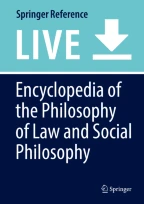
The idea that principles of justice are best understood by reference to a social contract is an ancient one, going back at least to the fifth century BCE. In The Republic, Plato has Glaucon say that justice can be understood as an agreement “neither to do wrong nor to suffer it,” and he traces the motive for the agreement in the desire to avoid jointly disadvantageous mutually aggressive behavior (Plato 1941: 42–43). The idea is presented as a commonplace (“what people say”), although it was usually associated with the Sophists in classical Athens, before being taken up by the Epicureans in Hellenistic Greece.
For many centuries, the idea of political society as a contractual association lay buried. It reemerged in early modern political thought, 1600 to 1800 CE, where it was used not to provide a theory of justice, but rather to support theories of political obligation, understood as the duty to obey state authority, notably in the works of Hobbes, Locke, and Rousseau.